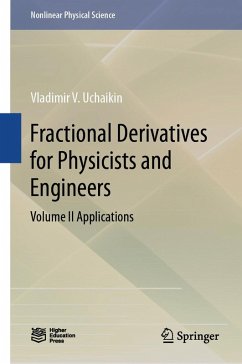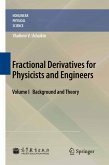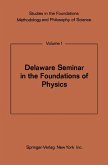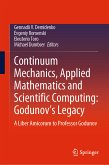This book brings new perspectives in front of the reader dealing with turbulence and semiconductors, plasma and thermodynamics, mechanics and quantum optics, nanophysics and astrophysics. The first derivative of a particle coordinate means its velocity, the second means its acceleration, but what does a fractional order derivative mean? Where does it come from, how does it work, where does it lead to? The two-volume book written on high didactic level answers these questions. The first volume (ISBN: 978-3-642-33910-3) contains a clear introduction into such a modern branch of analysis as fractional calculus. This second volume develops a wide panorama of applications of the fractional calculus to various physical problems.
This book is addressed to students, engineers and physicists, specialists in theory of probability and statistics, in mathematical modeling and numerical simulations, to everybody who doesn't wish to stay apart from the new mathematical methods becoming more and more popular.
Dieser Download kann aus rechtlichen Gründen nur mit Rechnungsadresse in A, B, BG, CY, CZ, D, DK, EW, E, FIN, F, GR, HR, H, IRL, I, LT, L, LR, M, NL, PL, P, R, S, SLO, SK ausgeliefert werden.









